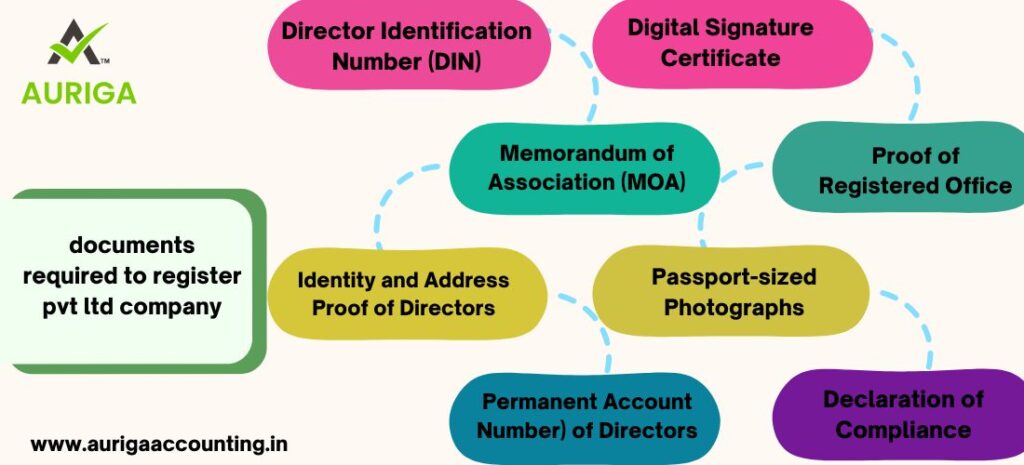
HOW MUCH DOES CA CHARGE FOR COMPANY REGISTRATION?
Introduction
ToggleHOW MUCH DOES CA CHARGE FOR COMPANY REGISTRATION?
The fees charged by Chartered Accountants (CAs) for company registration can vary based on factors such as the type of company and the services provided. CAs typically offer a range of services, including assistance with documentation, compliance, and advisory services. The charges may encompass professional fees for their services, government filing fees, and any additional costs related to expedited processing or specialized requirements. It’s advisable to consult directly with a CA or accounting firm to obtain accurate and up-to-date information on their specific charges for company registration services. Visitofficialwebsite
pvt ltd company registration process
The Pvt Ltd (Private Limited) company registration process involves several key steps to establish a legal and operational entity.
Name Reservation: Begin by selecting a unique and appropriate name for the company. Ensure the chosen name is not already in use and complies with regulatory guidelines. Submit the name reservation application to the concerned authority.
Document Preparation: Draft the Memorandum of Association (MOA) and Articles of Association (AOA). These documents define the company’s objectives, structure, and operational rules. They need to be prepared in accordance with the legal requirements of the jurisdiction.
Director Identification Number (DIN) and Digital Signature Certificate (DSC): Obtain DIN for the proposed directors and DSC for electronic document submission. DIN serves as a unique identification for directors, and DSC ensures the authenticity of documents filed online.
Application for Incorporation: File an application for company registration with the Registrar of Companies (RoC). Include details such as the company’s name, registered office address, directors’ information, and the authorized capital. The RoC reviews the application, and upon approval, issues a Certificate of Incorporation.
Post-Incorporation Formalities: Following incorporation, apply for a Permanent Account Number (PAN) and Tax Deduction and Collection Account Number (TAN) from the tax authorities. PAN is crucial for income tax purposes, while TAN is needed for tax deduction and remittance.
Goods and Services Tax (GST) Registration: If applicable, register for Goods and Services Tax (GST) in compliance with the jurisdiction’s regulations. GST registration is mandatory for businesses meeting specific turnover criteria.
Ongoing Compliance: Ensure compliance with ongoing regulatory requirements, including filing annual returns, conducting regular board meetings, and adhering to tax obligations. Non-compliance can result in penalties and legal consequences.
Professional Guidance: Seek professional guidance from legal and financial experts to navigate jurisdiction-specific regulations and ensure a smooth registration process.
In summary, the Pvt Ltd company registration process involves name reservation, document preparation, obtaining DIN and DSC, filing an incorporation application, completing post-incorporation formalities, registering for GST if necessary, and maintaining ongoing compliance. Professional assistance is recommended to navigate the intricacies of company registration efficiently.

documents required to register pvt ltd company
Registering a Private Limited (Pvt Ltd) company involves submitting a set of essential documents to the relevant regulatory authorities. The specific requirements may vary based on the jurisdiction, but the following list provides a general overview of the commonly required documents:
Director Identification Number (DIN): Each director of the company must obtain a unique Director Identification Number. This is typically obtained by filing an online application with personal details and supporting documents.
Digital Signature Certificate (DSC): A Digital Signature Certificate is required for electronic authentication of documents. It ensures the security and authenticity of online submissions during the registration process.
Memorandum of Association (MOA) and Articles of Association (AOA): These documents outline the company’s objectives, rules, and regulations. They need to be drafted and submitted with the registration application, and their contents should comply with legal requirements.
Proof of Registered Office: Submit documents validating the registered office address of the company. This may include rental agreements, utility bills, or property ownership documents.
Identity and Address Proof of Directors: Provide identity proof (such as passport, driver’s license, or Aadhar card) and address proof (such as utility bills or bank statements) for each director. These documents establish the identity and residence of the individuals involved.
Passport-sized Photographs: Recent passport-sized photographs of each director are typically required as part of the registration process.
PAN (Permanent Account Number) of Directors: Furnish the PAN details of all directors. PAN is a crucial identifier for tax purposes and is necessary for regulatory compliance.
Declaration of Compliance: Directors need to declare that all requirements of the Companies Act have been complied with, and the company is eligible for incorporation.
How much does CA charge for company incorporation
The fees charged by Chartered Accountants (CAs) for company incorporation can vary based on several factors, including the complexity of the registration process, the scope of services provided, and the specific requirements of the client. Additionally, fees may differ from one CA to another and can depend on the geographical location and market conditions.
the charges for company incorporation by CAs in India, for example, typically ranged from INR 15,000 to INR 50,000 or more, depending on various factors. This range includes the professional fees charged by the CA for their services, along with government fees, documentation charges, and other related expenses.
It’s essential to clarify the scope of services included in the CA’s fee structure. Some CAs may provide comprehensive services, including drafting documents, obtaining digital signatures, and ensuring compliance with various legal requirements, while others may charge separately for specific services.
When engaging a CA for company incorporation, it’s advisable to discuss the following aspects:
Scope of Services: Clearly understand what services are included in the quoted fee. This may include drafting documents, obtaining necessary certificates, and completing the registration process.
Additional Charges: Inquire about any potential additional charges, such as government fees, stamp duty, or other expenses that may arise during the incorporation process.
Timeline: Discuss the expected timeline for completing the incorporation process, as quicker services may sometimes come with higher fees.
Post-Incorporation Services: Inquire about any post-incorporation services provided by the CA, such as assistance with tax registrations and ongoing compliance.
Credentials: Ensure that the CA has the necessary credentials and experience in company incorporation to provide reliable and accurate services.
How much fees charged by CA for GST registration
In India, for instance, where GST registration is mandatory for businesses meeting specific turnover criteria, the fees for GST registration services by CAs typically range from INR 2,000 to INR 5,000 or more. This range includes the professional fees charged by the CA for their services, as well as any additional charges that may apply.
When engaging a CA for GST registration, it’s essential to discuss the following aspects:
Scope of Services: Understand what services are included in the quoted fee. This may involve completing the GST registration application, obtaining the GSTIN (Goods and Services Tax Identification Number), and providing guidance on compliance requirements.
Additional Charges: Inquire about any potential additional charges, such as government fees or other expenses related to the GST registration process.
Documentation: Ensure that the CA specifies the documents required from your end for the GST registration process and whether document preparation is part of the service.
Timeline: Discuss the expected timeline for completing the GST registration, as some CAs may offer expedited services at an additional cost.
Post-Registration Support: Inquire about any post-registration support or guidance provided by the CA, especially regarding ongoing GST compliance.
How much do CA charge for audit
2000 to Rs. 80,000 as minimum amount and which can go up to any level as per the complexity of work. The mentioned fees are recommended and not compulsory which are proposed for the welfare of the Chartered Accountants.
Do I need CA for GST
Earlier, it was mandatory for businesses with an aggregate annual turnover of more than Rs. 5 crores to get audit certification from CAs. However, now the CBIC has declared that such businesses can self-certify their GST return. GST returns can be filed on your behalf by a CA and but it is not mandatory for businesses.
What is the cost of CA report
On average, a CA may charge anywhere from 10,000 to 50,000 rupees for these services. It is recommended to get quotes from multiple CAs and compare their services and fees before making a decision. From what you mentioned it transpires that he wrote your books of accounts and also filed your income tax return.
How much a CA earns in India
What is the minimum turnover for CA audit
As per section 44AB, following persons are compulsorily required to get their accounts audited : A person carrying on business, if his total sales, turnover or gross receipts (as the case may be) in business for the year exceed or exceeds Rs. 1 crore.
Is CA registration compulsory
In order to appear in the CA Foundation Examination, candidates must have registered for the CA Foundation course with the Board of Studies (BoS) of ICAI and completed a four months study period from the date of registration.
Is CA responsible for ITR
One of the prevalent misconceptions is that only CAs are responsible for filing ITRs. While CAs can assist in the process, the ultimate responsibility lies with the taxpayer.
conclusion
In India, the most common business structures include private limited companies, public limited companies, and limited liability partnerships (LLPs). The registration fees for each type of entity can differ.
Private Limited Company: The registration fee for a private limited company is based on its authorized capital. The fee is higher for companies with higher authorized capital. Additionally, there are fees associated with the filing of various documents during the registration process.
Public Limited Company: Similar to private limited companies, the registration fee for public limited companies is based on authorized capital. Public companies, being larger entities, often have higher authorized capital, leading to higher registration fees.
Limited Liability Partnership (LLP): LLPs have a different fee structure, typically based on the contribution of the partners. The filing fee for an LLP is generally lower than that of a private or public limited company.
Professional advice and assistance may be sought during the registration process, which could incur additional charges. Furthermore, companies are required to comply with annual filing requirements, and non-compliance may result in penalties.
In conclusion, the cost of company registration in India depends on various factors, and individuals or entities looking to register a company should refer to the latest fee structure provided by the Ministry of Corporate Affairs or consult with professionals to ensure accurate and up-to-date information.
How auriga accounting help you to define cA charge in company registration
Auriga Accounting or its services. However, accounting firms and professionals, in general, play a crucial role in assisting businesses with company registration, including understanding and navigating the associated charges.
Here’s how an accounting firm like Auriga Accounting might help in defining CA (Chartered Accountant) charges in the context of company registration:
Fee Structure Understanding: Accounting firms often have a deep understanding of the regulatory environment and fee structures related to company registration. They can help businesses comprehend the charges imposed by regulatory authorities, such as filing fees, processing fees, and any additional costs associated with different business structures.
Regulatory Compliance: Professional accountants are well-versed in the legal and regulatory requirements for company registration. They can guide businesses through the process, ensuring that all necessary documents are prepared and filed accurately and on time. This expertise helps in avoiding potential penalties and delays that might arise from non-compliance.
Optimizing Costs: Accountants may provide advice on structuring the business in a way that minimizes unnecessary costs. This includes understanding the implications of different business structures and helping the business choose the most cost-effective option based on its goals and financial capabilities.
Communication with Authorities: Accountants often act as intermediaries between businesses and regulatory authorities. They can communicate with relevant authorities, including Chartered Accountants if needed, to address any concerns, seek clarifications, or resolve issues related to registration charges.
Post-Registration Compliance: Beyond registration, accounting firms can assist with ongoing compliance requirements. This includes annual filings, maintaining proper financial records, and ensuring that the business adheres to tax regulations.
It’s important to note that the specific services offered by accounting firms can vary, so businesses should inquire with Auriga Accounting or any other firm about their range of services, expertise, and associated fees. Consulting with professionals can help streamline the registration process and ensure that businesses meet all legal requirements efficiently.












